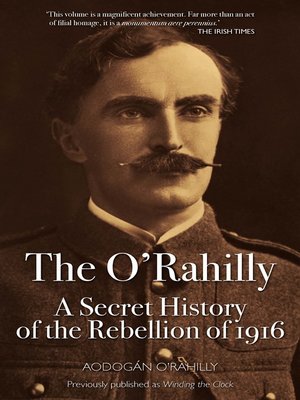
Sign up to save your library
With an OverDrive account, you can save your favorite libraries for at-a-glance information about availability. Find out more about OverDrive accounts.
Find this title in Libby, the library reading app by OverDrive.



Search for a digital library with this title
Title found at these libraries:
| Library Name | Distance |
|---|---|
| Loading... |
Although commemorated by Yeats's poem, Michael O'Rahilly is one of the forgotten leaders of the 1916 Rising — the first leader to die, the only one killed in action. This is his story written by his son, beginning in Ballylongford, County Kerry. O'Rahilly was educated at Clongowes, married a Philadelphia heiress, and had a brief career as a country gentleman and JP. O'Rahilly spent several years in the USA, returning in 1909 to Dublin, writing for the Sinn Féin press and joining the Gaelic League. Until his death, he devoted himself to the achievement of his country's independence. The O'Rahilly, as he became known, was the prime mover in the formation of the Irish Volunteers and its director of arms, organizing the purchase and delivery of the Howth rifles in July 1914. During Easter Week itself he acted as Pearse's aide-decamp in the General Post Office, and after Connolly was wounded became effective commander of the garrison. He died leading twelve men in a charge against a British barricade in Moore Street. Aodagán O'Rahilly was twelve when his father was killed, a privileged spectator of events that had the simplicity, and inevitability, of Greek tragedy. A final letter from son to father was endorsed by a dying soldier's farewell to his wife, punctured by the fatal bullet. This is the last personal account of 1916, honouring tradition that led to the founding of the Irish state, while saluting an individual who made it possible. It contains telling sketches of other actors in the drama — Casement, MacNeill, Redmond, Devoy, Hobson, Plunkett, Markievicz, Childers, Griffith, Pearse, Connolly — and by weaving unpublished documents and family letters through the narrative, clothes the skeleton of history.







